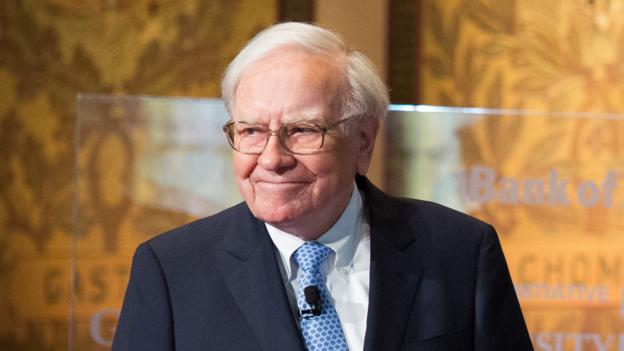Why saying ‘no’ will boost your career

Billionaire Warren Buffett says the very successful say 'no' to almost everything. (Drew Angerer/Getty Images)
Famous
billionaire US investor Warren Buffett once said, “The difference
between successful people and very successful people is that very
successful people say ‘no’ to almost everything.”
Wouldn’t it be a
relief to feel confident enough to simply say ‘no’ when someone asks
you to take on yet another task or commit to another event? Often, we do
just the opposite, for fear of hurting our reputations, seeming
difficult or damaging our career prospects.
Of course, there are also times when saying agreeing is critical.
After all, Buffett didn’t advise saying vetoing everything. So how can
you say ‘no’ gracefully and when is it important to say ‘yes’ with
enthusiasm? And is ‘no’ really code for ‘not now’ sometimes?
Several LinkedIn Influencers weighed in this week. Here’s what two of them had to say.
Adam Grant, Wharton School professor, author of Give and Take
And
it can feel like every ‘no’ is a “missed opportunity to make a
difference and build a relationship,” wrote Grant. “And if it comes
across the wrong way to the wrong person, it’s also a surefire way to
brand yourself as selfish and rude.”
But, “saying no frees you up
to say yes when it matters most,” he wrote. So, how do you say ‘no’
without damaging your reputation? Grant offers eight solutions he’s
tried himself — and their pros and cons. Among them:
“The deferral. I’m
swamped right now, but feel free to follow up.” Of course, this one has
its downsides, he wrote. “This initial filter provided clues about who
cared the most about connecting with me.” But, Grant wrote, this option
can unwittingly reward aggressive or single-minded people, “stalkers”
who will do whatever it takes to get what they need from you.
“The batch. Others
have posed the same question, so let’s chat together.” Grant uses
Google Hangouts to meet with people who want similar information or who
have shared reasons to talk to him. “I... found that it helped people
create a community around common interests. It also served as a
low-commitment first encounter for me to gauge how helpful I could be in
subsequent interactions.”
“The introduction.
When I wasn’t in a position to help, I sometimes knew people who
could... I facilitated the connection,” wrote Grant. “This was a huge
time-saver and often proved far more helpful than the other approaches.”
But, he cautioned, “there’s one major downside: [introductions] can be
an imposition on the person who’s being enlisted to help.”
His
solution: “I started checking with my colleagues first to see if they
were comfortable with an introduction,” wrote Grant. “That way, I didn’t
punish the most generous givers by overloading them with requests — and
it was less likely to damage our relationship or my reputation.”
Linda Descano, managing director and head of content & social at Citi
Descano turned to other successful women for their advice on saying ‘yes’ and other career tips in her post Say Yes + Other Tips for Accelerating Your Career. Among the wisdom, she found some insight on when it makes sense to do something — even if it’s a big task to take on.
“I
would encourage my younger self to say ‘yes’ to new challenges, often
and easily,” advised Liz Kaplow, president and CEO of Kaplow PR who
described a daunting proposal in the early days of the Internet. Other
firms had more experience and know-how, but she decided to say yes to
the request for a proposal. Her firm got the job. “Every time I’ve
pushed myself to take on something I haven’t done before it has paid
off…. Say ‘yes’, be resourceful and tackle something new: the
professional and personal rewards are immeasurable.”


No comments:
Post a Comment